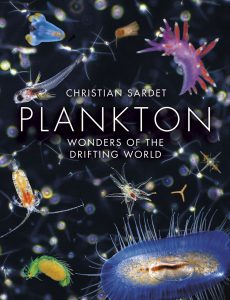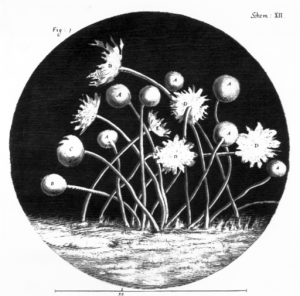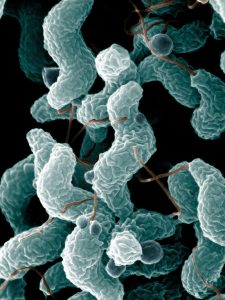
I have a background in microbiology – for my PhD I studied the corkscrew-shaped bacterium Campylobacter jejuni – so when I was recently asked to interview Rutgers University microbiologist Paul Falkowski for the brilliant website Five Books, I jumped at the chance to hear about his recommended reads.
First up was what Falkowski describes as an “oldie but goldie”: Micrographia by Robert Hooke. This 1665 book is still in print, celebrating its 350th anniversary this year. In it, Hooke described what he saw with the help of a new-fangled invention for the time: a microscope. It includes breathtakingly accurate illustrations of structures from fleas’ eyes to flies’ wings, as well as tiny chambers in a slice of cork that reminded Hooke of the rooms in which monks lived: he called them “cells”.
“It was the first book that really showed the public what the world they could not see with their naked eye looked like,” says Falkowski. And it fascinated people – the diarist Samuel Pepys apparently stayed up till two in the morning reading it.
Then we talked about the 2003 book Life on a Young Planet by Andrew Knoll. Many authors telling the story of life on earth might start with the emergence of animals and planets, but that’s precisely where Knoll stops. Instead, he addresses life’s first three billion years. “What Andy has done is really exposed us to the world before animals and plants,” says Falkowski, “when there was strong evidence of life but the world was totally controlled by single celled organisms, the protists.”
I was surprised by Falkowski’s next choice, The Genesis of Germs by Alan Gillen. This is a creationist text arguing that microbes, like all life, were created by God. It turned out Falkowski wanted to discuss this book not for what it gets right, but for what it gets wrong.

“It’s 148 years since the first edition of The Origin of Species was published,” he says. “Here you have a person studying the organisms that most obviously represent a history of evolution, and yet, amazingly, the idea of microbes appeals to him as a creationist.” Creationism is a popular belief in the US, of course. “We currently have 14 candidates in the Republican Party running for president of the United States. Not one of them will be able to stand up in front of a television audience in the United States and say, ‘I believe in evolution,’ and win the nomination.”
In fact, says Falkowski, microbes provide some of best evidence we have for Darwinian evolution. “One of the very best ways we can prove evolution works as a process is because we can select for natural mutations in E.coli generations that have gone on for years,” he says. “My colleague Rich Lenski has 30 years of continuous cultures of E. coli, and they have evolved. It is not possible to reconcile the demonstrable evidence with a religious worldview of creationism.”

We also discussed Microcosmos by Lynn Margulis and Dorion Sagan, a classic 1986 book pushing the now-accepted idea that the complex cells making up animals and plants were formed when bacteria engulfed other bacteria. This process formed organelles inside the host cells: energy-producing factories called mitochondria, and chloroplasts, which carry out photosynthesis. Discussions of evolution often focus on competition and conflict, but Margulis instead emphasised symbiosis and cooperation, where species work together to create something stronger than either might achieve alone.
But my favourite of Falkowski’s recommendations is Plankton: Wonders of the Drifting World by Christian Sardet, published this year. This book features exquisite images of different forms of plankton from baby sea urchins to carnivorous comb jellies. Sardet is a French developmental biologist who sailed around the world sampling and photographing marine organisms as as part of the Tara expedition.
“It’s a 21st century version of a Robert Hooke book,” says Falkowski. “If you were to take Hooke and bring him into the modern world and say, ‘OK Bobby, here you go, here’s a microscope, and by the way, you have this new thing called a “camera” and you can take pictures of the beasts!’ he would have had been in scientific Heaven – just like Christian when he made these images.”
Hooke would have been fascinated by plankton, Falkowski reckons, and would have loved these gorgeous images that bring the microscopic world to life.
You can read the full Five Books interview – with links to all the books – here.

Leave a Reply